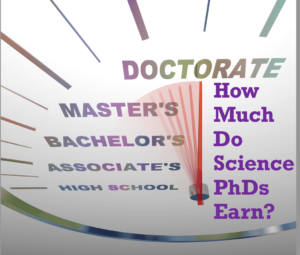
Much more than any other professional or graduate school, speaking with alumni is an important part of the MBA application process. In addition to providing intel for future interviews and guidance for your personal statement (it’s common to name-drop an alum in an essay), these conversations also serve as genuine investigatory steps as you decide which schools to apply to or, hopefully, which schools to select from among the many that end up accepting you. With that in mind, here are two overarching bits of advice as well as five specific tips for getting the most out of an alumni conversation.
First, as you engage in these conversations, trust your gut. Ask yourself, “could I see myself studying, learning, working, and socializing with this person?” Obviously, no one person represents the culture of an entire school, but if repeated interactions with alumni from School X repeatedly make you think, “hmmm… not my vibe,” then at the very least, pay attention to that and try to get to the bottom of it. I tell clients all the time that you should NOT view an MBA as something you must simply endure; it should be an exciting experience that, even though it’s hard work, you are eager to commit yourself to fully. If people aren’t your vibe or tempo, and you feel like you wouldn’t fit in… think twice.
Second, approach every conversation looking to do two things beyond getting the kind of specific information outlined below: find reasons to apply and reasons not to apply. Often, by the time a candidate speaks to an alum, they’re already in love with the school or enamored by its brand. But just as the application process is where the school finds out whether they like you, so too should you use this process to discern whether you think you’re a good fit for the school. Be a one-(wo)man AdCom, looking for red flags and green lights. Think about everything you hear, identify strengths and weaknesses, and don’t be afraid to pointedly (but politely) follow up if somebody says something that makes you wonder if School X is ideal for you. Similarly, if an alumni is willing to speak with you, it’s probably because they love their school, so find out why.
Now, for the five questions you should ask!
In the quest to select the right MBA program, conversations with alumni can provide invaluable insights, bridging the gap between a school’s polished marketing material and the reality of students’ experiences. Alumni have been through the journey you are about to undertake and can offer perspectives that cut through the noise. Here are five essential questions to ask alumni that can help determine if a program is the right fit for you.
- What was the most transformative aspect of your MBA experience at this school?
I love open-ended questions like this. This is a great way to begin a conversation. People LOVE to talk about themselves, and people tend to like people who allow and urge them to talk about themselves. So beyond eliciting great information, this question opens the door to the kind of meaningful storytelling that creates a sense of trust. It also allows alumni to share their unique experiences, shedding light on the school’s potential to provide transformative learning experiences. Also, their answers can offer a glimpse into the aspects of the program that have the most impact, whether it’s the course curriculum, faculty, internships, or networking opportunities. If their transformative experience aligns with what you hope to achieve from your MBA, this school might be a good fit for you. If not, well… it’s good to know that too!
- How would you describe the school’s culture, and how did you fit into it?
Asking someone about “culture” is useful because, to begin with, everybody has their own definition of what that means. So, even how they define “culture” will tell you something about their sensibility and values. But whatever it means to a particular person, culture plays a pivotal role in shaping your MBA journey. The alumni’s response will give you a sense of the social dynamics, values, and ethos of the school. It’s also a window into the competitive or collaborative nature of the environment, and whether the school values diversity and inclusiveness beyond just slogans. By asking how they fit into this culture, you can assess how your own values and personality may align or clash with the school’s culture.
- What did you think of the faculty and their teaching methods?
Whether they’re providing facts, inculcating skills, or providing broad-ranging mentorship, faculty relationships can transform your MBA experience. Indeed, faculty members are the backbone of any educational institution, and their teaching styles can significantly impact your learning experience. Alumni can provide insights into how professors engage with students, their approachability, and their emphasis on theoretical learning versus practical application.
- How did the school’s career services support your career development and job search?
At the end of the day, you earn an MBA so that you can put your professional trajectory on a steeper trajectory. So understanding how a school can help you get where you’re trying to go is vital. How an alumnus answers this can help you understand the school’s commitment to career development. How proactive is the career services department? What kind of internships, job fairs, networking events, or company visits do they arrange? How successful are students in securing jobs in their desired field post-MBA? This information is critical, especially if you are considering an MBA as a means to change careers or accelerate career progression.
- Knowing what you know now, would you choose the same MBA program again? Why?
This retrospective question can yield particularly insightful responses. If the alumnus would choose the same program, ask why. Is it because of the school’s culture, faculty, network, or reputation in a particular field? If they wouldn’t, their reasons can provide you with potential red flags about the program.
Remember, the goal of these questions is not just to collect data but to engage in meaningful conversation that will help you assess whether the school aligns with your professional goals and personal values. The alumni’s candid responses will be instrumental in making an informed decision about whether the MBA program will be a good fit for you. It’s about envisioning where you’ll grow, thrive, and transform in your journey—not just about following the crowd to a top-ranked program.
Lastly, I believe strongly in the “kindergarten rules” of “be nice, be polite,” and so remember to send an email or (even better!) a handwritten thank-you note to any person who offers you their time and energy. Even if you end up not going to that school, it’s a small world, and people remember kind gestures and a person who shows basic interpersonal respect by saying “thank you.”
For more help with your personal statement, check us out at Gurufi.com. Our personal statement editors and consultants have decades of experience helping clients get into top MBA programs. Our specialty is helping you craft compelling personal statements that move the needle in your admissions process! For questions, shoot us an email at service@gurufi.com. Check us out on Facebook, Twitter, and LinkedIn.





